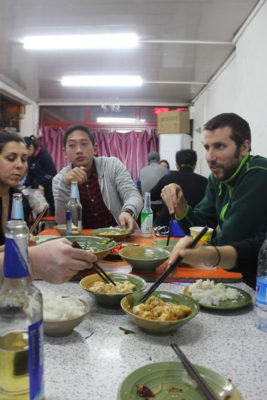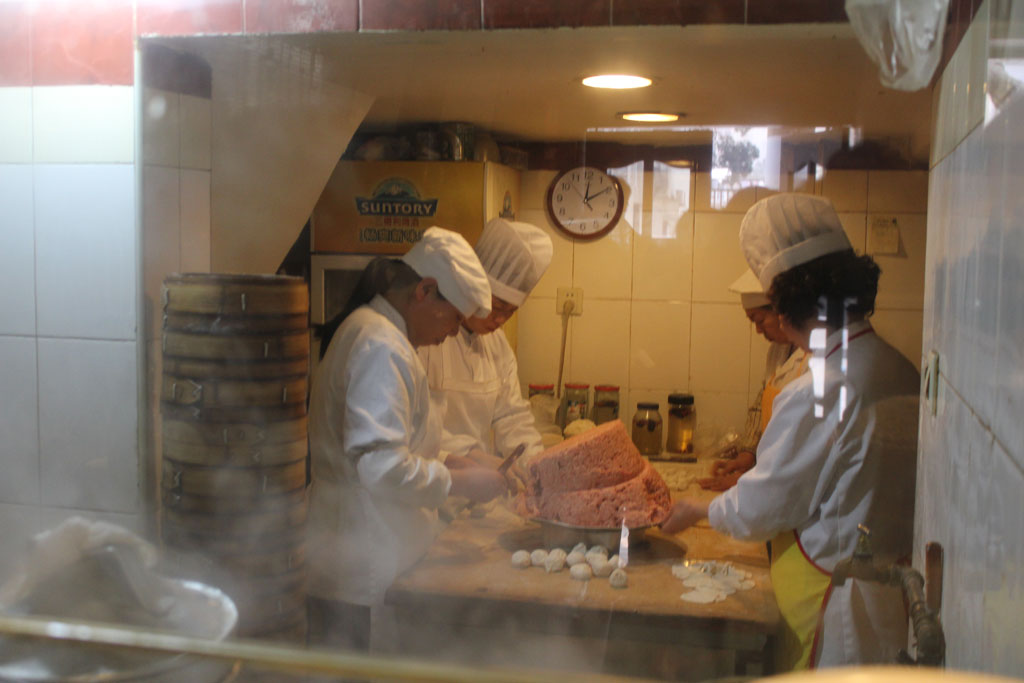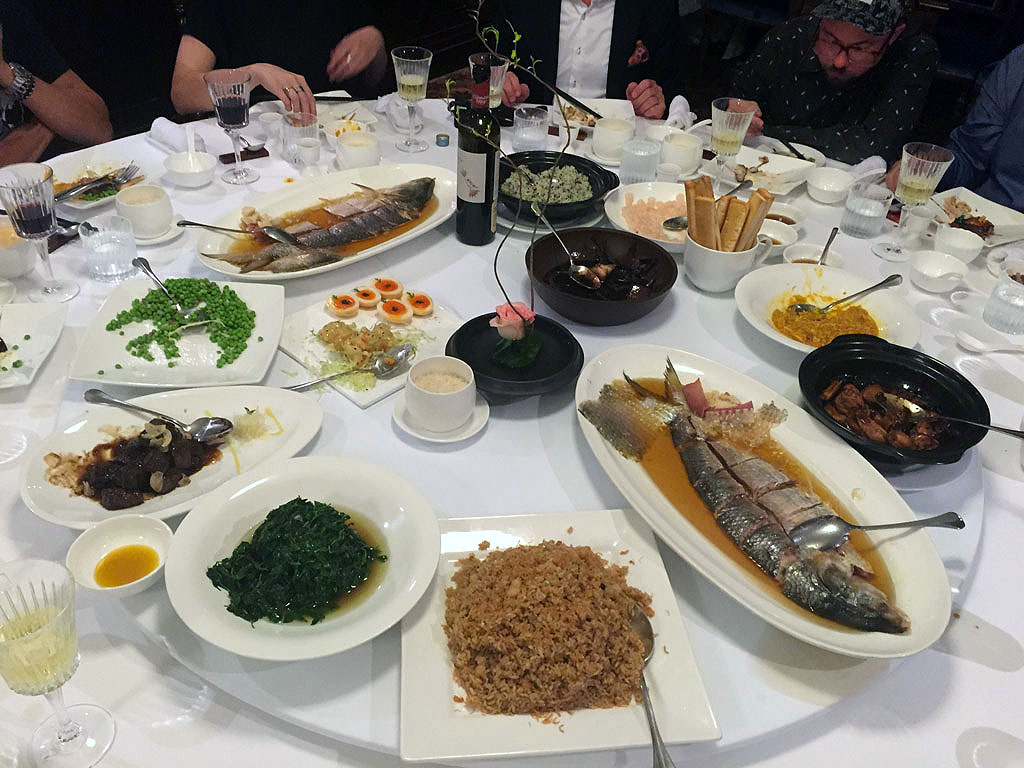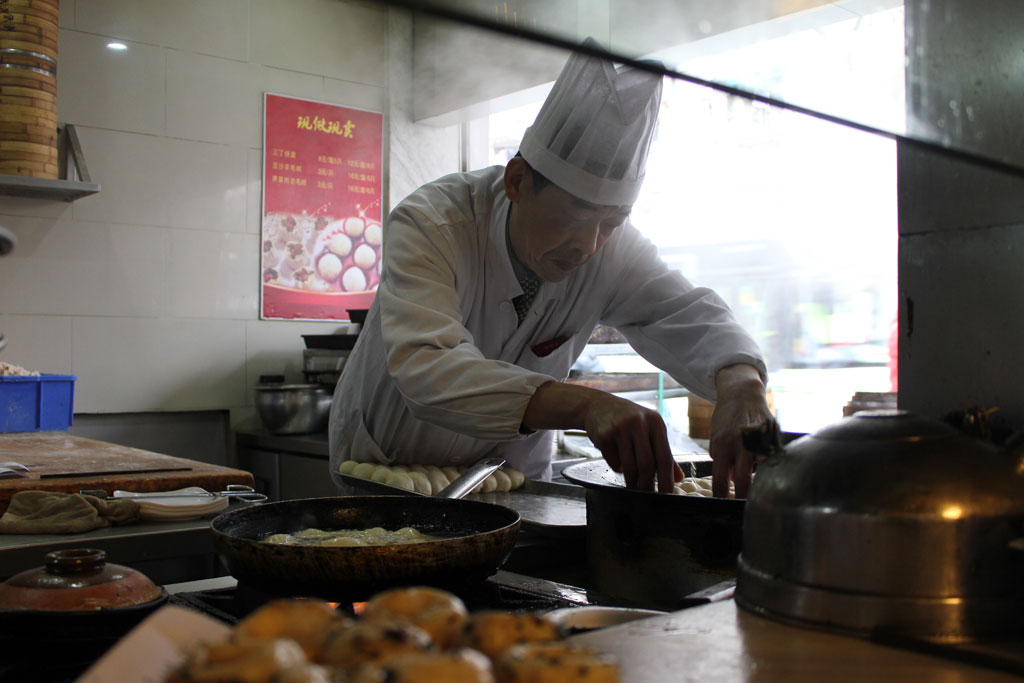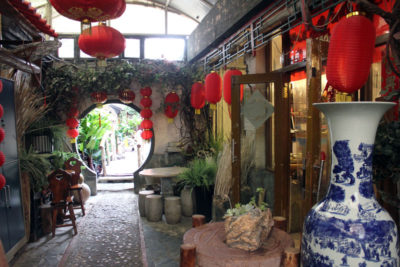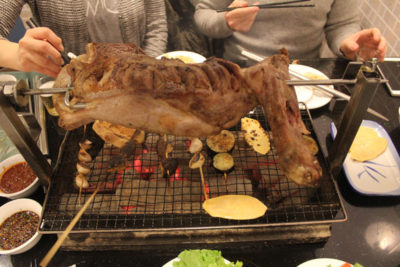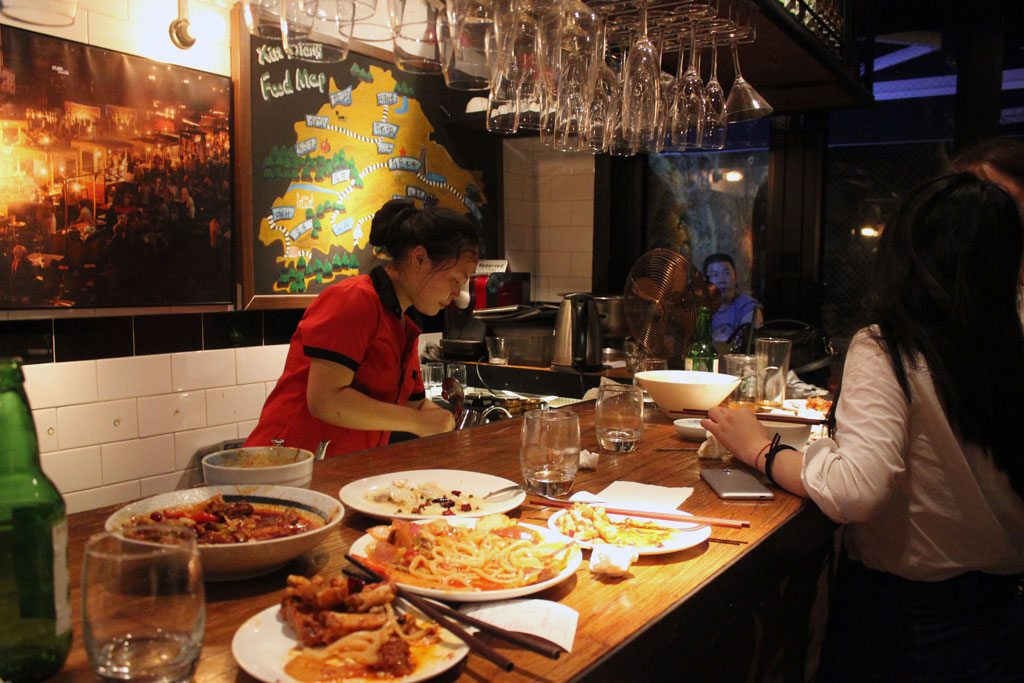We can't find the internet
Attempting to reconnect
Something went wrong!
Hang in there while we get back on track
Search results for "Jamie Barys"
Elsewhere
Zhang Mama: Spicy Lady
When a menu is written only in Chinese characters, it presents a language barrier for foreigners. When a restaurant offers a Mandarin-only menu and requires diners to handwrite their order in characters, that molehill becomes an actual mountain. But Zhang Mama doesn’t care – diners have been queuing up for upwards of an hour outside the dingy hutong restaurant for a bite of its Sichuan cuisine since it opened in 2009. Why? It’s equal parts delicious and cheap. Demand got so high for this hole-in-the-wall shop that they opened two more shops, one just down the street from the Dongcheng district original and another in Chaoyang district. But it’s still not easy to get a seat during peak mealtimes.
Read moreShanghai
Fu Chun Xiao Long: Shanghai Snack Attack
We’ve raved about the Shanghai-style soup dumplings at Fu Chun for years now, but let us let you in on a secret: There’s more to this tiny hole-in-the-wall than its xiaolongbao. Since 1959, the restaurant has been serving up benbang dishes, but little has changed on the menu or in the kitchen. A Huaiyang snack shop, Fu Chun admittedly skews Shanghainese in its regional flavor profile, which means extra sugar and a lot of pork. Try the traditional deep-fried pork cutlet (炸猪排, zhà zhūpái). Pounded thin before hitting the deep fryer, these fatty flanks are served sliced with a side of black rice vinegar – a dip helps cut the grease.
Read moreShanghai
Best Bites 2016: Shanghai
Shanghai's dining scene was abuzz with controversy this fall as the Michelin Guide landed in the city for the first time ever. You can't please everyone, but no one seemed happy with the disproportionate number of Cantonese restaurants that were recognized. Thankfully, there's still plenty of delicious variety in the city, starred or not, and we continued to chow down across the price and regional spectrum. A Da Congyoubing After 34 years of making the cult favorite scallion oil pancake, Mr. Wu was shut down by the government in September for not having the proper licenses. Thanks to the serious outcry from the city’s foodies, the district government helped him expedite his licensing, and delivery start-up Ele.me found a new spot just a couple blocks from his apartment.
Read moreShanghai
Wuyuan Bingjia: Baked in Time
When Wuyuan Bingjia first opened in 1936, it was one of many Shanghai-style bakeries around town, churning out trays of benbang dim sum dishes to be eaten on the go or taken home and enjoyed with the family. Now, as the city grows skyward and Shanghainese palates skew more international, these old-style bakeries are slowly dying out. Wuyuan Bingjia is one of the last ones standing, and it’s not thanks to the service. (Word to the wise: Be ready to order when you get to the cashier or you’ll get an earful from the waitstaff.)
Read moreElsewhere
Baoyuan Jiaozi Wu: Dumpling Rainbow
Baoyuan Jiaozi Wu was locally famous in Beijing for years, then U.S. Secretary of the Treasury Jacob Lew turned the sprawling dumpling house into a Chinese viral sensation when he lunched there in 2013. The modest meal came just weeks after Xi Jinping became the President of the People’s Republic and launched anti-corruption campaigns that tried to eliminate extravagant dinners replete with sea cucumbers and Moutai baijiu. The meal for three at Baoyuan came to just RMB 109 (US$16) – a jaw-droppingly low number for a lunch for officials in China. Netizens around the country hailed the secretary for his low-key, local choice.
Read moreElsewhere
Tan Hua Roast Lamb Leg: DIY BBQ
Inner Mongolia is famous in China for its lamb and all the different ways it’s prepared there, whether it’s braised lamb spine or thinly sliced marbled cuts dip-boiled in a hotpot. Lamb roasted whole is always a great choice, but the more common version (and the one you won’t need to pre-order days in advance) is roasted lamb leg (烤羊腿, kǎo yáng tuǐ). Legend has it that Genghis Khan’s personal servant was worried about how much of the nomadic conqueror’s time was taken up by waiting for whole lambs to be grilled to sate his hunger, so he asked the chef to prepare roasted lamb legs instead.
Read moreShanghai
Miss Ali: All About the Lamb
Fun fact: More than 70 percent of the meat eaten in China is pork. And while stuffing yourself with xiaolongbao and hongshao rou is a must when eating in Shanghai, it can be nice to have a respite at halal restaurants like Miss Ali. Yan Ali, the owner and namesake of the restaurant, arrived in Shanghai from Xinjiang – China’s predominantly Muslim province in the country’s far northwest, where she previously hosted TV shows. Ali didn’t like the way her native cuisine was often represented in Shanghai – with waiters robed in garish “costumes” and performing songs and dances from their region – and decided to create a more accurate representation of the restaurants of Xinjiang.
Read more